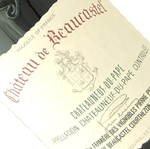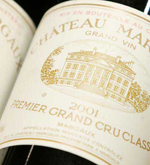English wine history
The Romans introduced wine making to the United Kingdom, and even tried to grow grapes as far north as Lincolnshire. It was successfully done till the cooling in the 800s although the remnants of this can still be seen to this day in the city of Lincoln in the gardens of the medieval Bishop's Palace. Winemaking continued at least down to the time of the Normans with over 40 vineyards in England mentioned in the Domesday Book, although much of what was being produced was for making communion wine for the Eucharist.
From the Middle Ages, the English market was the main customer of clarets from Bordeaux, France, helped by the Plantagenet kingdom, which included England and large provinces in France. In the 18th century, the Methuen Treaty of 1703 imposed high duties on French wine. This led to the English becoming a main consumer of sweet fortified wines like sherry, port wine, and Madeira wine from Spain and Portugal. Fortified wine became popular because unlike regular wine, it does not spoil after the long journey from Portugal to England.
When Henry VIII came into power in 1509, 139 vineyards were recorded, 11 of which produced as Royal vineyards, dedicated to the monarchy.
Just as English wine began to recover from the epidemics of Phylloxera and Powdery Mildew in the mid 19th Century, brought back with the Explorers of New America, commercial English wine was dealt a heavy blow. In 1860 the government, under Lord Palmerston (Liberal) supported free trade and drastically cut the tax on imported wines from 1 shilling to 2 pence, a decrease of 83%. English wine was therefore out-competed by superior foreign products that could be sold at a lower cost to the customer. The twilight of British winemaking tradition, which stretched back to the very first Roman explorers, was brought to an end with the onset of the First World War, as the need for crops and food took priority over wine production. The rationing of sugar pushed the knife even deeper until, for the first time in 2000 years, English wines were no longer being produced in either Wessex, nor the rest of the country.
Later in the 19th century, many upper and upper-middle class people started to drink wines from many parts of Europe like France, Spain,Italy and Germany.
It was not until 1936, that George Ordish planted vines in Wessex and the South of England, bringing about a voyage of rediscovery for English wines and wine making. With many individuals keen to produce their own wines from home, and with equipment and methods becoming more available, the government outlawed the production of homemade alcohol at the beginning of the 1960s, only to retract the law after 5 years as the homebrew fashion escalated considerably. After a lull in the 80s and 90s, homebrewing is coming back, with many small and established brew shops seeing a rise in sales and increased interest through Internet sales. A great number of books and recipes are now readily and freely available and as the recession hit hard in the UK in 2008, more and more people, young and old are turning to traditional methods of wine and beer production.









